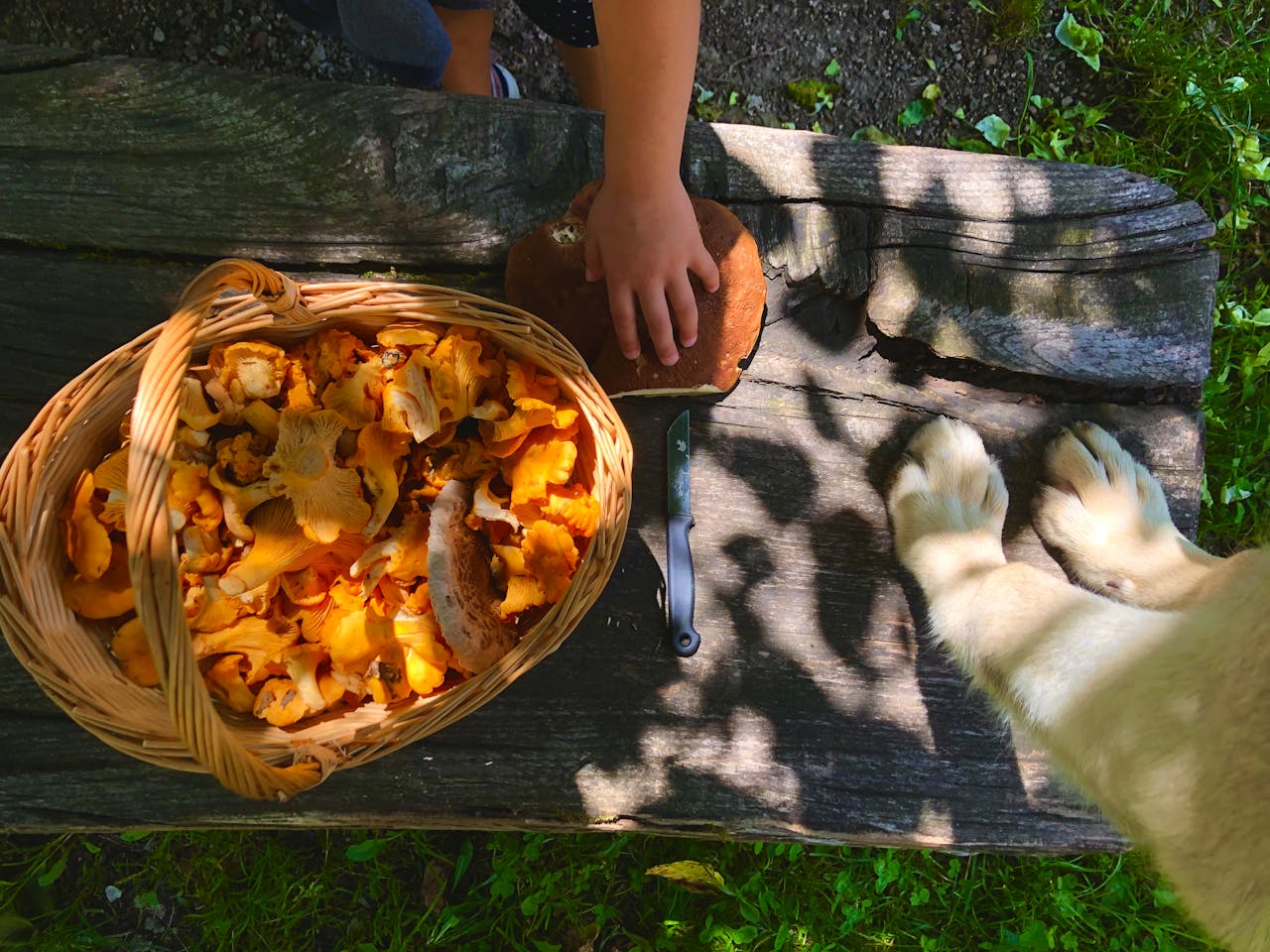1. Typical Toxic Mushroom Types
The Death Cap (Amanita phalloides), Destroying Angel (Amanita bisporigera), and False Morels (Gyromitra spp.) are among the most harmful mushrooms for dogs. These can seriously harm organs since they contain lethal poisons. Acquire the ability to recognize these mushrooms or routinely eliminate wild fungi from your yard.
2. Indications of Poisoning from Mushrooms
Depending on the species, symptoms of mushroom poisoning can include jaundice, tremors, convulsions, vomiting, diarrhoea, drooling, and lethargy. It can be challenging to diagnose certain mushrooms early because of their delayed symptoms. See a vet right away if your dog exhibits any strange behaviour after being outside.
3. The Rule of “One Bite Can Kill”
Toxins found in certain toxic mushrooms are so strong that a single bite can result in death. Devastating consequences may result even if a dog simply chews on a tiny bit. Never presume that an unknown wild mushroom is poisonous, and don’t let your dog eat any that you find outside.
4. What to Do Right Away If Your Dog Eats a Mushroom
Remove any leftover pieces from your dog’s mouth, snap a picture of the mushroom so you can identify it, and call your vet right once if your dog consumes a wild mushroom. Some toxins can be more harmful if vomited, therefore never try to induce vomiting without medical assistance.
5. Postponed Toxic Impacts
The delayed effects of some mushrooms, such as the Death Cap, often show up 6–12 hours after consumption, by which time irreparable organ damage has already been done. A dog may appear healthy at first, but then abruptly start to deteriorate. This means that even if symptoms are not yet apparent, prompt veterinarian care is essential.
6. The Habitat of Toxic Mushrooms
Forests, grassy parks, and even home gardens are good places for poisonous mushrooms to grow since they are moist and shaded. Before your dog has a chance to investigate, remove any mushrooms from your yard and look for any new fungal growth after a rainstorm. Reducing the growth of mushrooms can also be achieved by routinely removing organic material and fallen leaves.
7. Safe versus Dangerous Mushroom Types
Although mushrooms seen in food stores, such as white button or cremini, are usually safe, it can be quite challenging to differentiate between dangerous and edible wild mushrooms. Safe types of mushrooms are often very similar to deadly ones. Never presume a mushroom is safe unless a mycologist (an specialist in fungi) has correctly identified it.
8. Identification and Management
Veterinarians use lab testing, symptoms, and mushroom identification to diagnose mushroom toxicity. Inducing vomiting, giving IV fluids, activated charcoal to absorb toxins, and drugs to protect organs are all part of the treatment. You have a better chance of surviving if you seek medical attention right away.
9. Teaching Your Canine to Steer Clear of Mushrooms
By teaching dogs to “leave it,” you can stop them from inadvertently ingesting dangerous items like mushrooms. Keep your dog on a leash and discourage foraging behaviour when you walk in wooded areas or after rain. The key to keeping pets safe outside is supervision.
10. Calling a Veterinarian When
Immediately contact Alpenlofts Veterinary Hospital at (604) 815-0057 if your dog consumes or simply licks a wild mushroom. In order to avoid serious poisoning, early treatment is crucial. You should always err on the side of caution, even if you are not sure if the mushroom is hazardous.
For dogs, mushroom poisoning poses a severe and potentially lethal risk. Many fungus carry lethal poisons that can cause irreversible damage, yet some are safe. Keeping your pet safe requires prompt veterinarian treatment, appropriate training, and routine yard inspections. Don’t wait for symptoms to appear if you think your dog may have consumed a wild mushroom. Take quick action. We at Alpenlofts Veterinary Hospital are available to offer professional care and urgent care. For assistance, contact us at +1 (604) 815-0057 or stop by our location at Tantalus Rd, Squamish, BC. We put your dog’s safety first!


